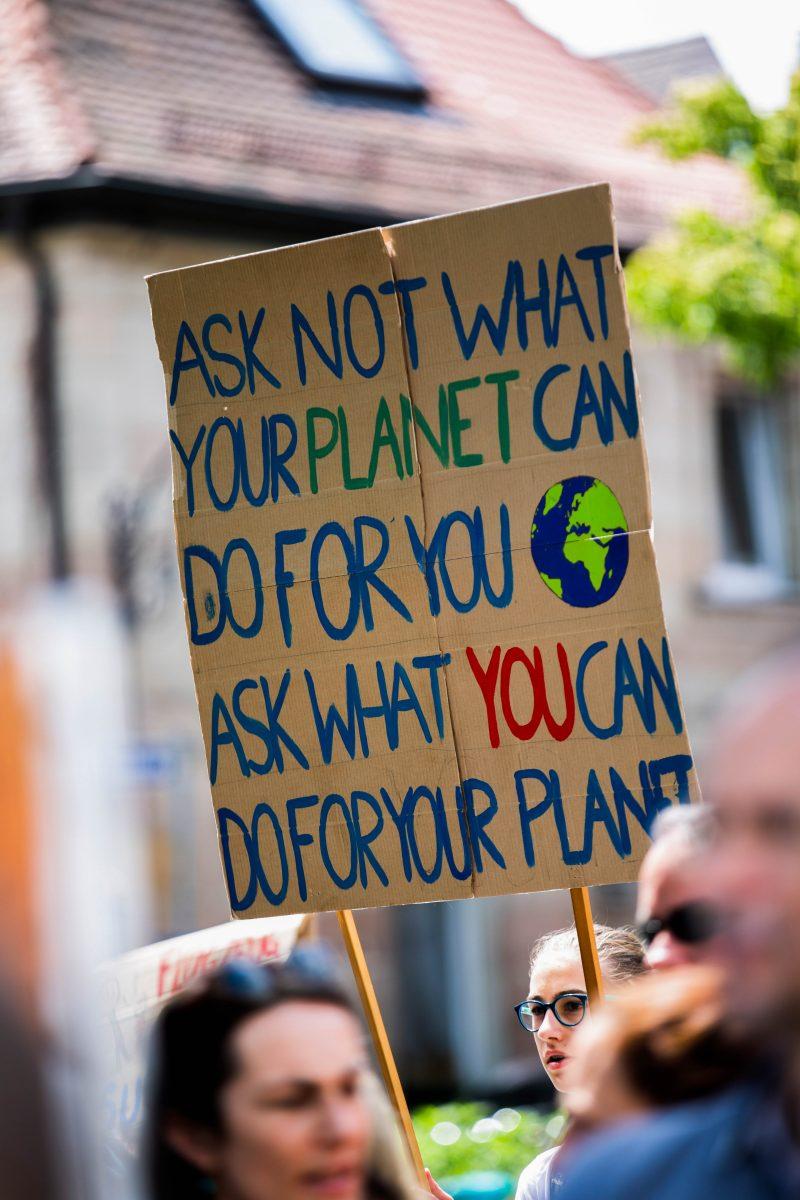More green in the cityscape and in the city coffers has to start with legislative action.
Local environmental activists want to show Aggies and elected officials how going green is good for the planet and the economy. Two local groups that want to empower everyone to take action to make change are the College Station chapter of Citizens Climate Lobby and the Texas A&M Student Sustainability and Climate Action group. Both are working to advance green legislative proposals, raise awareness of local issues and ultimately elect officials who will enact change.
The College Station chapter of CCL was started five years ago and currently has 57 members. Nationally, there are 599 active chapters of the nonprofit, nonpartisan, grassroots advocacy organization that focus on national policies to address climate change, according to the website. CCL member, Raymond Tarpley, said the organization has proposed the Carbon Fee Dividend to the U.S. House of Representatives as a way to lower greenhouse gas emissions without harming the economy.
“The measures proposed in this legislation will benefit the economy, human health, the environment and national security,” Tarpley said. The proposal acts to correct market distortions and reduce non-greenhouse gas pollutants while reducing the outflow of dollars to oil-producing countries, he explained, which also improves U.S. energy security.
Tarpley said the legislation has bipartisan support.
“There’s a lot of conservative economists that have said this is not only the way to move away from the catastrophic costs we’re enduring now as a result of climate change, but also stimulating a job economy in clean jobs in the future,” Tarpley said.
In March, CCL member Miranda Peterson founded SACA with the goal of bringing climate activism to campus.
“It’s really new,” Peterson said. “We wanted it to be up to the students and what they were planning.”
A recent focus has been the Gibbons Creek coal plant, located 20 miles from Bryan-College Station. The Texas Municipal Power Agency has announced its intention to sell the plant to a company called Charah. Peterson said Charah claims the plan is to decommission the coal plant and redevelop the site for “renewable energy, agricultural, commercial or industrial redevelopment opportunities.”
As for individual actions, Peterson said she has encouraged students to act now for their future.
“Often students don’t want to speak up or take climate and environmental action because they don’t feel qualified,” Peterson said. “Whether or not someone has taken the time to memorize the name of the bills or the names of representatives isn’t important.
“What is important is that students are speaking up and taking action on what they care about — like climate change,” Peterson said.
Scientists and governments have known about climate change since the 19th century, said Dr. Gunnar Schade, Ph.D., associate professor of Atmospheric Science.
“As computers became useful really in the 1970s, the first actual primitive climate models were run and essentially by the end of the 1970s we knew all we needed to know,” Schade said. Those early models have reliably predicted current warming, including its catastrophic impact on the environment.
“There are publications in the 90s that were made in the 1970s that were spot on, with respect to how much warming we would get, how it would progress and what the impacts from it would be,” Schade said. “So that was all already known and passed on to the government.”
Shade noted there is a simple, straightforward answer for students who ask how to bring about change.
“Voting,” said Schade is the only way a Repubican-controlled Texas will change.
This story is a collaboration between The Battalion and upperclassmen in Texas A&M’s journalism degree. To see the online copy of the Climate Change extra print edition, click here.









